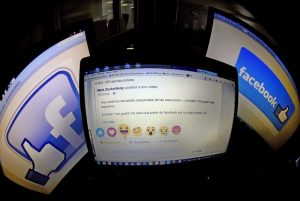With an election looming in September, fake news is big news in Germany, like reported by politico.eu.
So concerned is the German government by a growing quantity of false and defamatory information online that it is going further than others in pressuring tech companies to better police their networks. Parliament approved a new law this month under which lawmakers could soon impose fines of up to €50 million on social media firms if they fail to remove criminal content like defamatory and hate-inciting posts quickly enough.
“Something has changed,” Chancellor Angela Merkel told parliament shortly after fake news played a prominent role in the U.S. election. “Today we have fake sites, bots, trolls … We must confront this phenomenon and if necessary, regulate it.”
It’s one thing to confront fake news and another to find a solution for it. Germany is hardly alone. Policymakers, the media and tech companies on both sides of the Atlantic have struggled for months now to improvise responses.
The company at the center of the fake news battle is Facebook. Since the U.S. election last year, some Western politicians have put part of the responsibility — and the blame — for “fake news” on tech magnate Mark Zuckerberg and Facebook, the company he co-founded.
Fringe websites and political blogs that spread false information are boosted on Facebook and other social networks by an army of political supporters, in some cases even “bots” programmed to spread the message.
Eager to show it is tackling the problem, Facebook rolled out a tool in Germany to let journalists spot false news when it is flagged by Facebook users. Since April, Facebook has partnered with investigative journalists to fact-check material shared on the social network.
First in Germany to partner with the Silicon Valley giant is investigative news organization Correctiv, which started a website called Echtjetzt — or, Really now? — to debunk false information during the election campaign. “We check the web for bulls–t,” Karolin Schwarz, one of Correctiv’s new hires, said.
The results of this experiment, so far, are mixed. While Correctiv’s fact-checkers contend that the tool helps, they said they are still in the dark about how the social network compiles the list of posts to be reviewed.
Facebook’s fact-checking tool is “very often not relevant” and doesn’t explain how a story is gaining traction on the social network, said Jacques Pezet, a journalist who worked with the tool for the newspaper Libération during the French elections and recently joined Correctiv’s fact-checking team to cover the German race.
As the tool requires a second team of fact-checkers, independent from Correctiv, Facebook doesn’t remove stories flagged as “fake” by Correctiv. For its part, Correctiv publishes new articles on their own website debunking stories it believes are false.
A Facebook spokesperson said it is “testing and are in close conversations with the ecosystem on how the product is best [deployed],” stressing it hasn’t been fully rolled out yet. The spokesperson said the German version was still just “a test.”
The company didn’t disclose technical details on how it compiles the list of stories, nor how it assesses whether a potentially false story is gaining traction on its social media site. It said a story flagged as false “might show up lower in your feed,” but didn’t provide much more detail.
Race for shares
Facebook first used the tool to allow users to report stories as misleading during the French presidential race.
“We’re working on better ways to hear from our community and work with third parties to identify false news and prevent it from spreading on our platform,” Adam Mosseri, the company’s VP responsible for the news feed, wrote when the initiative was launched in April.
Tucked away on the second floor of a renovated industrial building in the central Mitte area of Berlin, a handful of Correctiv fact-checkers now uses the tool to work through a list of flagged Facebook posts. The Echtjetzt project got a €100,000 grant from George Soros’ Open Society Foundations.
Among the sites being closely tracked by Correctiv are a couple dozen blogs and alternative media websites that hit on nationalist tones similar to popular movements on the right, including the Pegida movement and, more recently, the Alternative for Germany party. As well as Politically Incorrect News, or PI News, which has for some time published stories on migration and Islam, others under scrutiny include Anonymousnews.ru and New-York-based conservative think tank Gatestone Institute.



